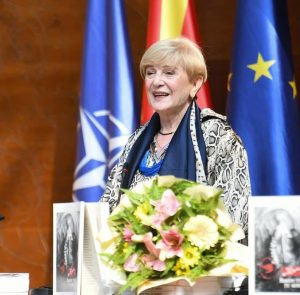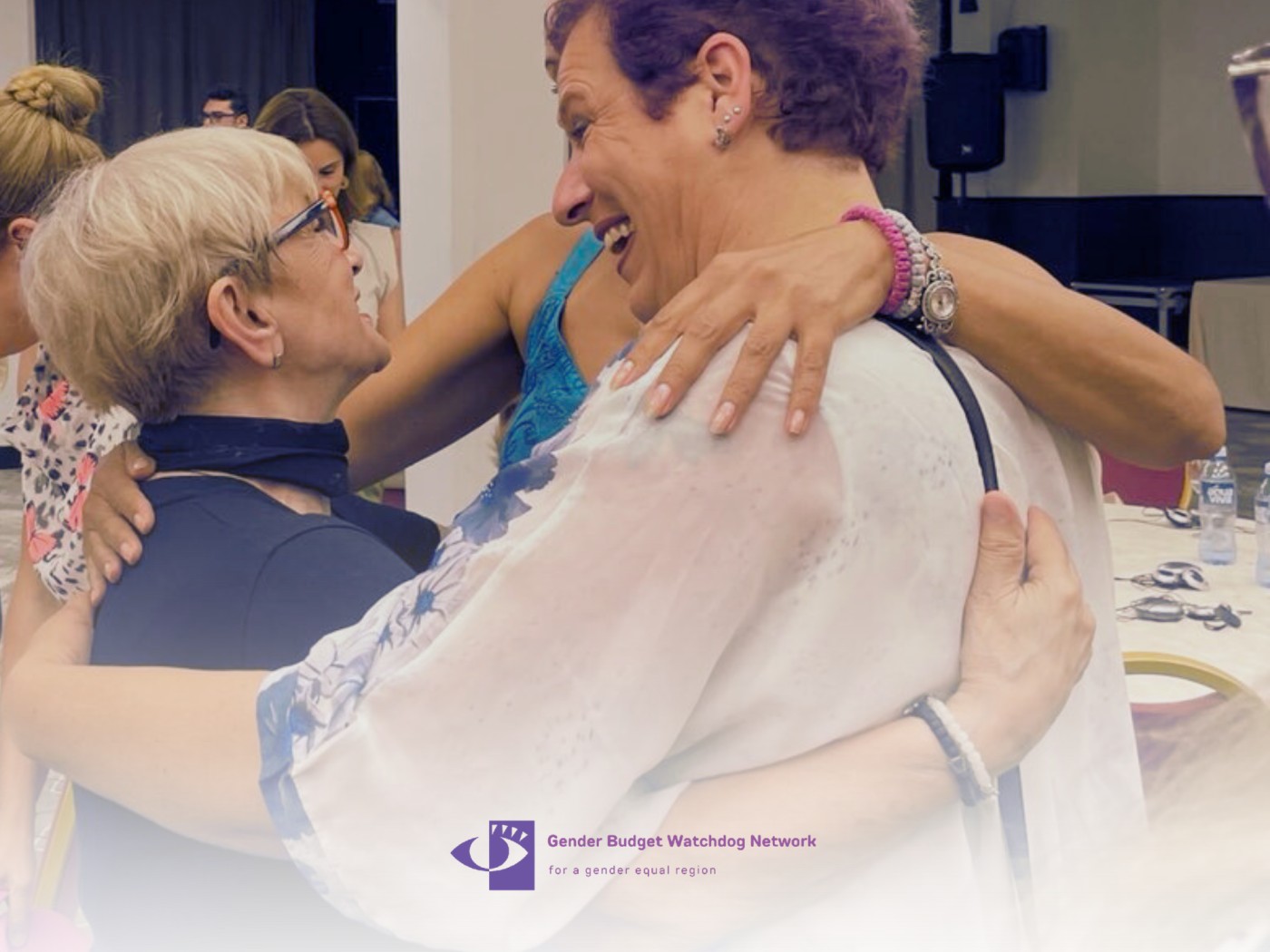by Mersiha Jaskic
I first met Savka Todorovska in 2022, in Ohrid, when she received the Gender Budget Watchdog Network Award for her outstanding contribution to advancing gender equality. Although she is 53 years my senior, her energy immediately humbled me.
Over the past few years, our paths have crossed often, bound by our shared work on gender-responsive budgeting across the region. Each meeting left me with the same feeling: a mix of admiration, inspiration, and that positive kind of jealousy one feels when standing next to someone with seemingly endless drive. Her sharp sense of humor, love for what in Bosnia and Herzegovina we would call ćejf, or the small pleasures savored slowly, and her unwavering commitment to women’s empowerment in its truest sense, not as a slogan, but as a lived practice, have been both grounding and motivating for my own work on equal access to resources and opportunities.
This year, we met again. This time in Kruševo, North Macedonia, during a GBWN workshop. As we were about to leave, Savka, wearing a badge of FAMA – the Feminist Anti-Militarist Network, began sharing a story from her childhood which interested me:
“I am from Veles, a town on a hill, similar to Kruševo where we are today, where every house has an entrance on one side and an exit on the other. During World War II, illegal resistance meetings were held there. Women had a specific role in Veles, mostly helping the resistance, whether by sewing clothes or hiding people. After the war, women gained a new role. My mother, among them, had the task of being a role model, especially to help educate others. I was born in 1943, and from the age of four, I attended the first kindergarten in Veles. Visiting or hosting children from the war orphanage was part of our daily lives. Most of what we did was voluntary. I share this not only to describe my childhood, but to explain why and how I learned about the importance of working for a better community, for everyone.”
 The National Council for Gender Equality, which Savka has led for many years, was established in 1994, as she would say, it is “a force and energy for women’s rights.” It brings together women’s organizations across North Macedonia to fight systemic stereotypes, advocate for legislative change, and promote women’s participation in decision-making. Its founding motto remains together; women are stronger.
The National Council for Gender Equality, which Savka has led for many years, was established in 1994, as she would say, it is “a force and energy for women’s rights.” It brings together women’s organizations across North Macedonia to fight systemic stereotypes, advocate for legislative change, and promote women’s participation in decision-making. Its founding motto remains together; women are stronger.
Savka’s lifelong journey inevitably led her to gender-responsive budgeting, an approach she sees as central to achieving real equality in the contemporary context:
“Working on women’s rights, I realized that traditional budgeting often ignores the different needs of women and men, as well as the structural inequalities in society. We can’t say that women in our region are not emancipated, but now we face other challenges: political representation, leadership positions, and budget allocations. These are the issues we need to address. Simply put, the tools we use to become equal members of society must be adapted to our context and gender-responsive budgeting is one of the key solutions for a more equal future.”
As our conversation drew to a close and we were supposed to each go back to our communities and continue working in an aligned but contextualized manner, Savka reflected on why it’s so important to nurture feminist values today:
“In today’s world, as we witness the rise of authoritarianism, misogyny, racism, and discrimination, nurturing anti-fascist and feminist values is more important than ever. Anti-fascism calls for a society without hate, violence, and repression, while feminism promotes equality, freedom, and solidarity across identities. These values are the foundation of resistance against oppression and injustice. To protect them is to defend human rights, democracy, and the dignity of every individual. This is our daily political, moral, and social responsibility.”
Savka’s story is a reminder that fighting for equality requires more than mere words, it requires structures, resources, and tools that address inequalities at their roots. And for her, gender-responsive budgeting is one of the most powerful tools we have.


